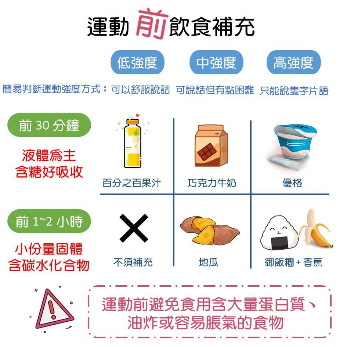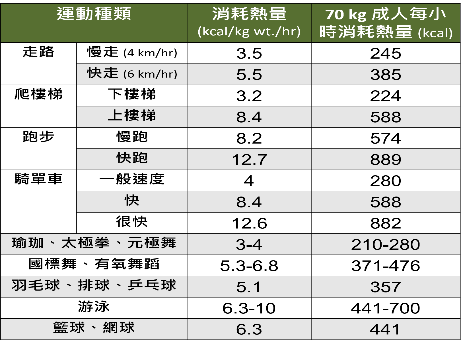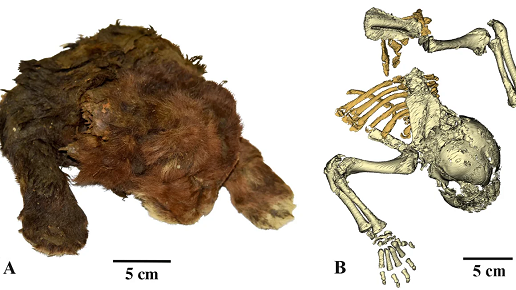Many people are accustomed to jogging in the morning right after waking up or hitting the gym after work before heading home. So, should you exercise on an empty stomach or eat something beforehand? If you're worried about stomach discomfort during exercise, what type of food should you choose?
Exercise Pre-Meal Guidelines: Master the Essentials for Muscle Gain and Fat Loss
Consuming a small amount of energy before exercise can not only enhance your workout performance but also prevent muscle loss. Maintaining muscle mass through exercise is crucial as it increases your basal metabolic rate, making weight loss healthier and preventing rebound weight gain more effectively than dieting alone. How should you fuel up? The amount of food intake should be determined by the type and intensity of exercise. The higher the intensity, the more you need to consume, and you should eat earlier to allow enough time for digestion.

Determine Caloric Intake Based on Exercise Intensity. Photo/Heho Health
How to Eat:
- Low-intensity exercise lasting over 60 minutes: Additional supplementation is only needed after 60 minutes; be cautious not to overeat.
- Moderate to high-intensity exercise lasting 30-60 minutes: Eat a small amount of solid food 1-2 hours before exercise or drink something within 30 minutes before.
- Moderate to high-intensity exercise lasting over 60 minutes: Eat a balanced meal 3-4 hours before exercise; or have a light solid food and fruit 1-2 hours before. If eating within 30 minutes before exercise, choose easily digestible foods.
What to Eat: Focus on Carbohydrates with a Small Amount of Protein
- Solid foods: Choose sweet potatoes, potatoes, whole wheat bread, or fruits. Avoid high-protein and fried foods.
- Liquid foods: Choose oatmeal drinks or barley drinks, avoiding foods that cause bloating.
How Much to Eat: Determine Caloric Intake Based on Exercise Intensity
- Here is a reference for common exercises' calorie consumption per kilogram of body weight per hour. Estimate your exercise calorie burn and allocate your pre- and post-exercise meals accordingly.
Smart Adjustment of Exercise and Meal Timing: The Key to Not Gaining Weight is "Controlling Total Calories"
Pre-exercise meals primarily focus on carbohydrates to ensure adequate glycogen in muscles, reducing protein depletion and muscle damage during exercise. It's essential to stay hydrated during exercise. Post-exercise nutrition is even more crucial. Some might wonder if eating before, during, and after exercise leads to weight gain. The key is to "control the total daily calorie intake." Distribute your daily food intake around your exercise schedule, integrate it with your main meals, or replace main meals if necessary. If you gain weight, it means you're consuming too many calories.

The Key is Not to Let Yourself Go Hungry Before or After Exercise. Photo/Heho Health
Recommended Exercise and Diet Adjustment Modes:
- Morning exercisers: Drink half a bottle of concentrated oatmeal drink or eat some crackers before exercise, then have a full breakfast afterward.
- After-work exercisers: Have some fruit or snacks before leaving work, and eat a balanced dinner immediately after exercising or working out.
- Pre-bedtime exercisers: Have a light dinner mainly consisting of carbohydrates, and follow it with a small meal after exercising. If it's too close to bedtime, opt for liquid foods that are easier to digest and won't disrupt sleep.
Did you notice? The key is not to let yourself go hungry before or after exercise. Align your eating and exercise schedules, and manage your total intake. Eating right not only improves workout performance but also aids in muscle gain and fat loss.







